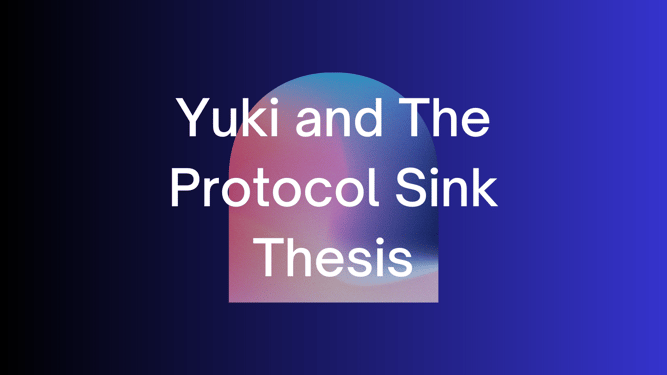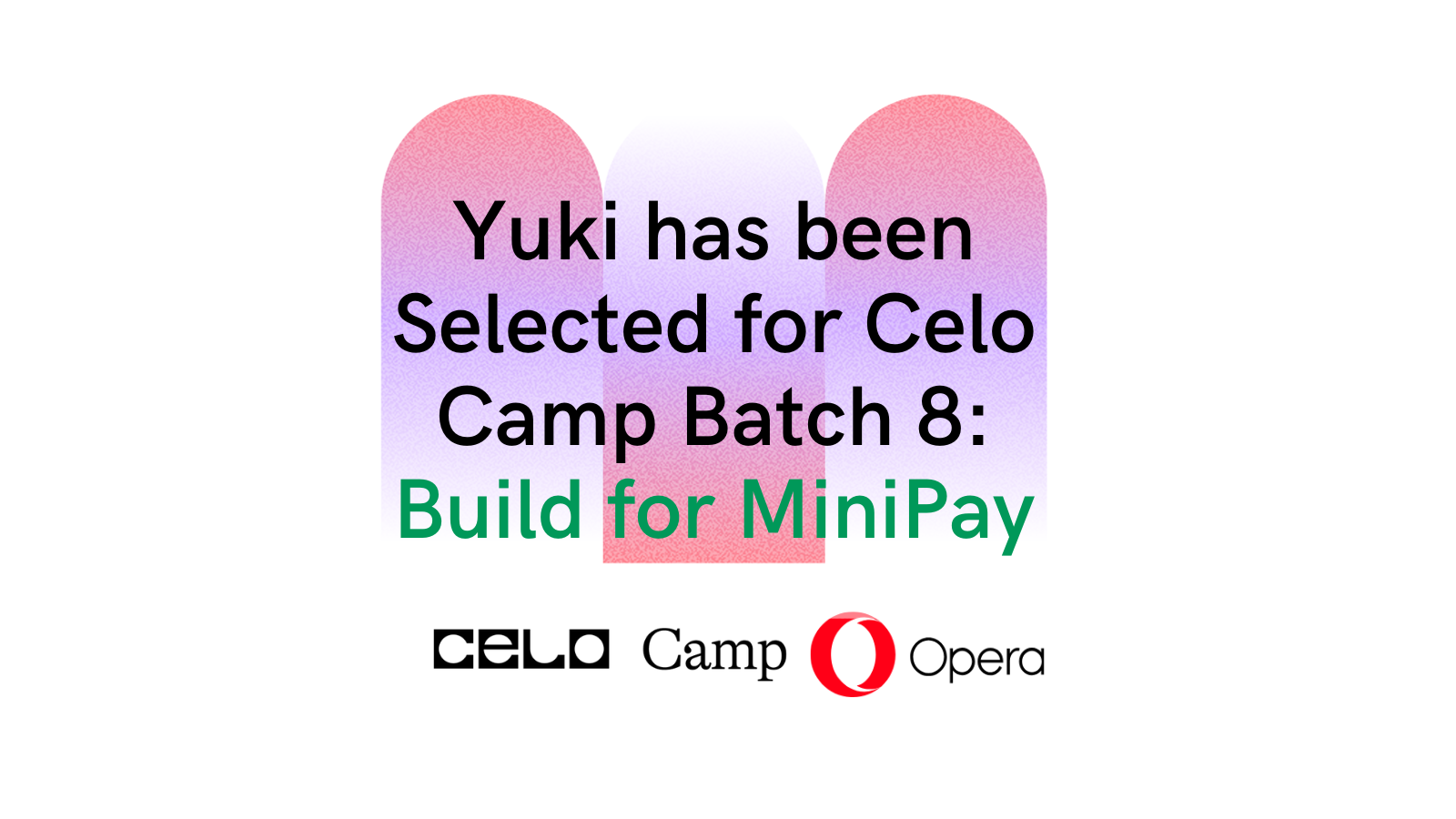Unlock Web3: The Protocol Sink Thesis and enabling builders in Africa

In the rapidly evolving landscape of Web3, the Protocol Sink Thesis has emerged as a guiding principle for the development of innovative solutions. As we embark on our journey to build Yuki, a decentralized Web3 infrastructure-as-a-service platform for Africa's financial companies, we recognize the profound implications of the Protocol Sink Thesis. In this article, we will explore how it applies to our product and how we are using it as a thinking model to shape our services.
What is the Protocol Sink Thesis
The Protocol Sink Thesis offers a model for how crypto-systems will manifest at maturity.
The thesis states that the more trustless, permissionless, and credibly neutral a protocol is, the further it can scale itself to a global platform, and as a consequence, absorb a larger amount of capital. Protocols that offer a platform to build upon become ‘dense’, and fall to the bottom of the Protocol Sink from the collective weight of the people and companies building on them.
David Hoffman, COO at RealT, and Co-Host of the Bankless podcast explains in his article "Ethereum for Global Public Goods and The Protocol Sink Thesis" that "The Protocol Sink Thesis illustrates how applications move from being financial experiments to unstoppable global financial platforms used by everyone. The more people use an application, the further down in the Protocol Sink it falls, and the more things collect at the bottom of the Protocol Sink, the stronger Ethereum's gravitational pull becomes."
How it applies
At the core of Yuki's mission is the Protocol Sink Thesis, a concept that challenges the traditional centralized financial system by advocating for a more decentralized system. At Yuki, we believe that by leveraging decentralized infrastructure, we can address the unique challenges faced by Africa's financial ecosystem, which we generally refer to as the Access problem.
According to a recent report from McKinsey & Company, Africa will add 796 million people to the global workforce and will be home to the largest and youngest population by 2050. However, Africa's 1.4 billion and incredibly fast-growing population is not always a good thing for fundraising statistics. Without income-generating opportunities, this population growth could be a catastrophe. At Yuki, we firmly believe that this is where the promise of crypto for Africa comes in.
Opportunities to create wealth or have the choice to opt out of a currency regime– to save one's income from reckless monetary policy, inflation, or currency debasement – do not come around very often. As more and more people come online across Africa, we have observed that there is a growing need for alternative ways to generate or protect their income, make payments, remittances, settle trades, and more; And crypto asset is making this possibility a reality for millions of people across the frontier markets.
The Decentralized reality
To truly realize the potential of crypto in Africa, any Web3 financial service provider must adhere to the ideals of the Sink Protocol: trustless, permissionless, and credibly neutral. Unfortunately, the financial infrastructure in Africa has long suffered from inefficiencies, bad monetary policy, limited access, and exclusionary practices due to its complex currencies and highly centralized institutions. Building more centralized platforms that are essentially just a shiny front end of the same gated/legacy financial infrastructure is not a sustainable solution to this structural problem.
Despite the proliferation of fintech platforms across Africa, it costs an average of $10 in fees to send $100 from Namibia to South Africa. This is on a continent where 85% of individuals live on less than $5.50 per day. As a result, the average person spends two-days worth of wages to send funds across borders.
Solving the Access Problem
Furthermore, the Protocol Sink Thesis predicts that the increasing adoption of trustless, permissionless, and credibly neutral platforms will lead to a more decentralized financial ecosystem. However, Web3 builders today across Africa sacrifice decentralization by building a centralized solution because of the need to offer a simplified user experience across their product stack and make it easier for users to interact with their product. This creates a compounded risky model across how assets are custodied, bankruptcy, as we have seen with FTX, Nestcoin, and more. Overall, this access problem imposes a regulatory burden on builders.
Yuki is a catalyze of true decentralization in Africa
As a decentralized infrastructure-as-a-service, Yuki aims to solve the access problem by building a platform that serves as a catalyst for decentralization and enables the proliferation of financial products that function similarly to their traditional custodial counterparts but are designed as non-custodial through the use of wallet contracts/multi-party computation protocol (MPC). This separates teams from the potential liabilities that come with a custodial client relationship, transforming them into technology facilitators who still provide the same advantages. By providing trustless and permissionless services, Yuki eliminates the risks associated with centralization, such as censorship, fraud, and manipulation. This attracts financial companies, developers, and capital, creating a dense and vibrant ecosystem within Yuki.
Conclusion
Yuki's alignment with the Protocol Sink Thesis extends beyond attracting value. It serves as a catalyst for decentralization and inclusion by empowering builders to develop decentralized applications. In doing so, Yuki fosters a more accessible and equitable financial system. Peer-to-peer transactions, smart contract automation, and cross-border payments become seamless, disrupting traditional financial models and democratizing financial services across Africa.

 By
By

